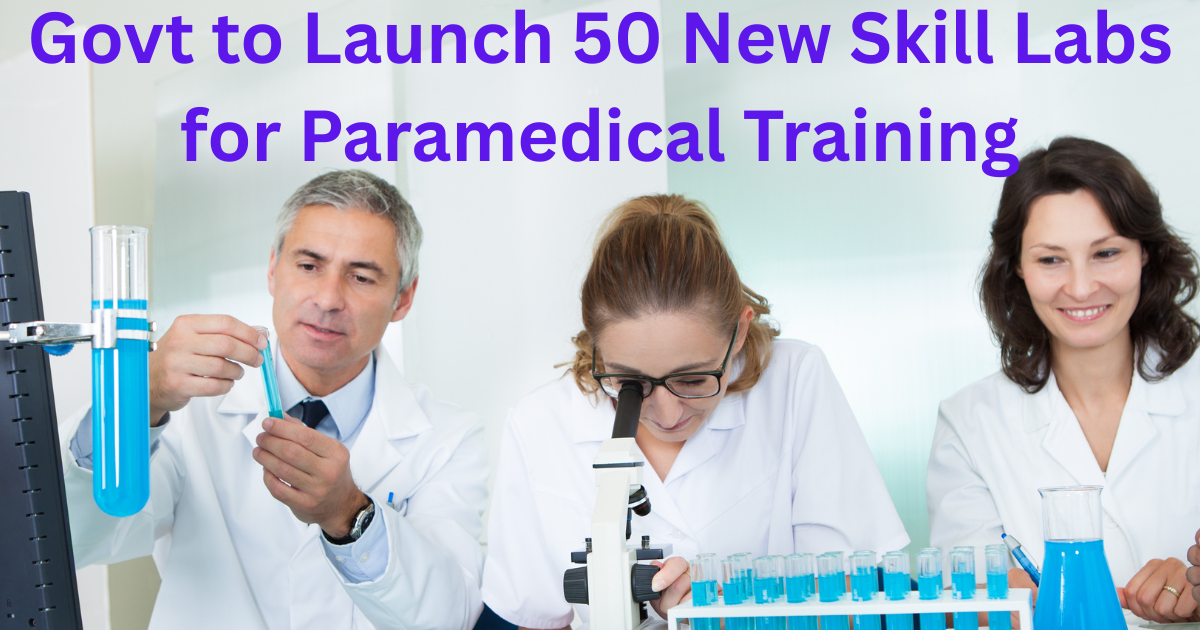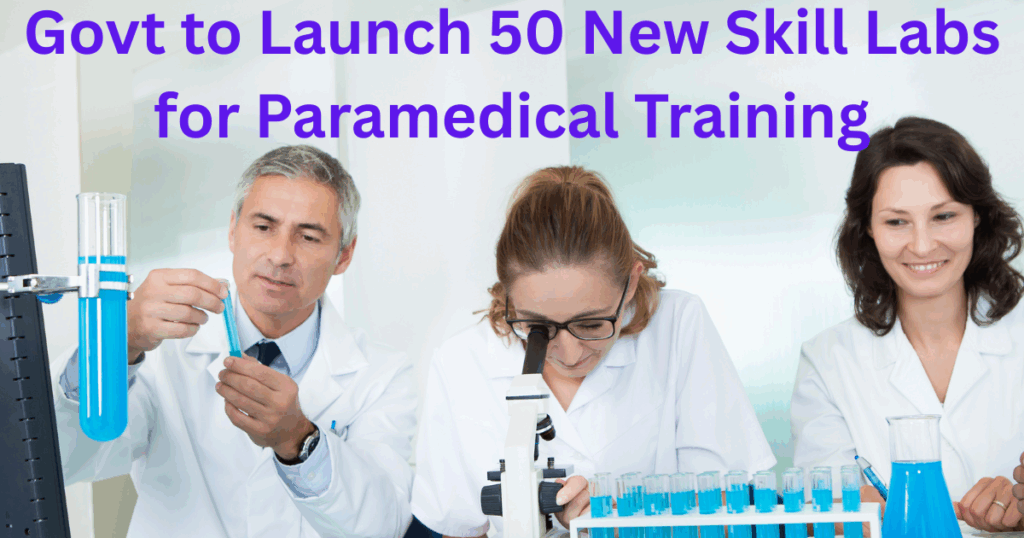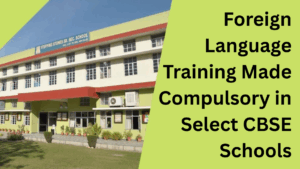Govt to Launch 50 New Skill Labs for Paramedical Training by 2026: Paramedical admission 2025 in India is an excellent opportunity for students aspiring to build a career in the healthcare sector without pursuing an MBBS. These courses provide specialised training in medical lab technology, radiology, physiotherapy, and emergency care, ensuring job-ready skills.
The curriculum combines practical training and theoretical knowledge, covering key topics like patient care, emergency procedures, and medical technologies. Graduates can pursue careers in fields such as nursing, physiotherapy, and radiography.
Govt to Launch 50 New Skill Labs for Paramedical Training
The National Skill Development Corporation (NSDC) on Thursday announced a significant expansion in its skilling footprint across India with plans to set up 50 new Future Skills Centres and 10 NSDC International Academies to advance skill development and training programmes.

NSDC aims to make quality education accessible to students from tier 2 and 3 colleges by addressing challenges in emerging technologies through collaborations with Institutes of National Importance.
Addressing a press conference, NSDC chief executive officer Ved Mani Tiwari said the number of industry-aligned programmes will increase to more than 300, covering 12 major emerging technologies.
Tiwari added that 11 premium institutions have partnered to launch 17 micro-credential programmes, awarding over 75,000 credits and training over 5,000 candidates. Looking forward, NSDC plans to collaborate with 15 premium institutions, introduce over 30 micro-credential programmes, and award around 180,000 credits, further enhancing access to quality education and skill development.
Additionally, NSDC International is extending its advisory service across the Gulf Cooperation Council countries and Africa, ensuring that workforce development programmes are effectively implemented in these regions.
NSDC has also made a substantial impact in terms of socio-economic diversity. A total of 1.58 million apprentices, constituting 45.5% of the total engagement, belong to socio-economic groups, ensuring inclusive growth. Furthermore, 0.71 million women apprentices, accounting for 20.5% of the total, have been engaged in various trades, promoting gender inclusivity.
What is a premedical course?
Paramedical courses are specialised programmes that train students to support medical professionals in diagnosing, treating, and managing patients. Paramedical courses focus on practical skills in fields like medical lab technology, radiology, physiotherapy, anaesthesia, and emergency care.
Paramedical course professionals play a crucial role in the healthcare system by assisting doctors and ensuring efficient medical services. Paramedical courses are available at diploma, undergraduate, and postgraduate levels, offering career opportunities in hospitals, diagnostic labs, and emergency medical services.
Key Attribution of the Paramedical course
- Duration: 6 months – 4 years
- Eligibility:
- UG: 10+2 with Physics, Chemistry, and Biology (PCB)
- PG: Relevant bachelor’s degree
- Diploma: Class 10th or 12th (Science)
- Admission: Entrance-Based/Merit-Based
- Top Colleges: AIIMS Delhi, CMC, Malla Reddy University Powered by Emversity, etc.
- Curriculum Focus: Covers subjects like Anatomy,
- Physiology, Pathology, etc.
- Fees:
- Govt. Colleges: INR 60,000 (approx.)
Pvt. Colleges: From INR 40,000 to 50,000 (approx.)
Eligibility Criteria for Paramedical Training
Educational Qualifications –
- Completion of higher secondary education (10+2) from a recognised board.
- Minimum aggregate score of 50%, with science subjects (Biology, Chemistry, Physics) required.
Age Limit –
- Generally between 17 and 25 years
- Some programmes may allow candidates up to 30 years, especially for those with healthcare experience.
Entrance Exams
- Some colleges require entrance exams.
- Check if the chosen course has a specific entrance test and prepare accordingly.
Medical Fitness
- Candidates may need to provide a medical fitness certificate.
- Ensures that the applicant can handle the course’s demands
Additional Requirements
- Some institutions may conduct interviews or group discussions.
- Check each institution’s website for specific additional requirements.
The curriculum combines practical and theoretical knowledge, covering topics like patient care, emergency procedures and medical technologies.
The platform collaborates with 57 digital learning partners, offering 1245 courses. Skills and knowledge play pivotal roles in economic growth and social development for any country. Nations
with higher skill levels and better standards adjust more effectively to challenges and opportunities in
both domestic and international job markets. According to the NSSO 2011-12 (68th round) report on the
Status of Education and Vocational Training in India: approximately 2.2% of individuals aged 15-59 reported
receiving formal vocational training, while 8.6% received non-formal vocational training. While the exact
magnitude of the challenge remains a topic of debate, there is no denying its formidability
Conclusion
In this article we discussed OVT to launch 50 new skill labs for paramedical training by 2026: Paramedical admission 2025 in India is an excellent opportunity for students aspiring to build a career in the healthcare sector without pursuing an MBBS. NSDC chief executive officer Ved Mani Tiwari said the number of industry-aligned programmes will increase to more than 300, covering 12 major emerging technologies.





